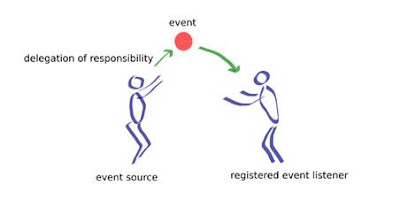Exception Handling in Python Part 1
Exception Handling in Python
What is an Exception?
An
exception is an error that happens during execution of a program. When that
error occurs, Python generate an exception that can be handled, which avoids
your program to crash.
Exceptions
are convenient in many ways for handling errors and special conditions in a
program. When you think that you have a code which can produce an error then
you can use exception handling.
Python
has many built-in exceptions which forces your program to output an error when
something in it goes wrong.
When
these exceptions occur, it causes the current process to stop and passes it to
the calling process until it is handled. If not handled, our program will
crash.
For
example, if function A calls function B which in turn calls function C and an
exception occurs in function C. If it is not handled in C, the exception passes
to B and then to A.
If
never handled, an error message is spit out and our program comes to a sudden,
unexpected halt
Exception Errors
Below
are some common exceptions errors in Python:
IOError
If the file cannot be opened.
ImportError
If python cannot find the module
ValueError
Raised when a built-in operation or function receives an
argument that has
the right type but an inappropriate value
KeyboardInterrupt
Raised when the user hits the interrupt key (normally Control-C
or Delete)
EOFError
Raised when one of the built-in functions (input() or
raw_input()) hits an
end-of-file condition (EOF) without reading any data
Syntax:
try:
some statements here
except:
exception handling
try:
# do
something
pass
except ValueError:
#
handle ValueError exception
pass
except (TypeError, ZeroDivisionError):
#
handle multiple exceptions
#
TypeError and ZeroDivisionError
pass
except:
#
handle all other exceptions
pass
If no exception occurs, except block is
skipped and normal flow continues. But if any exception occurs, it is caught by
the except block.
Raising an Exception
You
can raise an exception in your own program by using the raise exception
statement.
Raising
an exception breaks current code execution and returns the exception back until
it is handled.
Example:
try:
a = int(input("Enter a positive
integer: "))
if a <= 0:
raise ValueError("Opps! That is
not a positive number!")
print("You Enter : ", a)
except
ValueError as ve:
print(ve)
OR
x
= 10
if
x > 5:
raise Exception('x should not exceed 5. The
value of x was: {}'.format(x))
Try ... except ... else clause
The
else clause in a try, except statement must follow all except clauses, and is
useful for code that must be executed if the try clause does not raise an
exception.
try:
data = something_that_can_go_wrong
except IOError:
handle_the_exception_error
else:
doing_different_exception_handling




Comments
Post a Comment